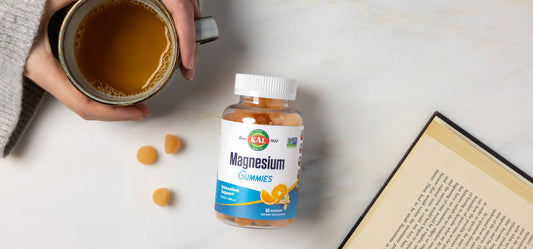There was a time not that long ago when the average individual had no idea what a probiotic was; however, today, nearly everyone has at least heard the term. But what exactly are probiotics and how do they influence health, especially a child’s health?
What Are Probiotics?
The scientific definition of a probiotic was officially created more than two decades ago which describes probiotics as “Live microorganisms, that when administered in adequate amounts, confer a health benefit on the host.” 1
The human body is teeming with small microbial cells including probiotic bacteria. In fact, the bacterial cells in and on the body outnumber human cells by ten times!2 The largest community of these microbial cells live in the gastrointestinal tract, but you can find these cells on the skin and in many other organs in the body. The collection of these tiny cells, which can include bacteria, fungi, viruses, and other microbes, is known as our microbiome, which the National Institute of Health says can “contribute in big ways to human health and wellness.”3
Because there are so many of these cells, it’s not surprising that they can influence health. Probiotics, in particular, are considered “good” bacteria because they can positively support health on a variety of levels.4
Children and Probiotics
The microbiome is formed in the first few years of life and then is influenced by diet, the environment, and other factors.2 Supporting the microbiome by feeding it healthy bacteria early in life is important.
Key probiotics such as L. acidophilus, B. bifidum, and L. bulgaricus can help support the health needs of children as they grow, specifically digestive health. Digestive irregularity can be uncomfortable, but the right probiotics can help keep kids feel more comfortable.5
Oral health is also important to children as they age and probiotics can help with that as well.6 In addition, when choosing a probiotic for your child, consider choosing a chewable that is fructose-free. Not only do studies suggest that Xylitol is a better sweetener alternative to sugar and fructose, but it tastes good too.7
Good Sources of Probiotics
When looking at ways to support your child’s digestive health through probiotics, consider adding a range of foods rich in them. Foods that are great sources of probiotics include:
- yogurt
- sauerkraut
- kimchi
- pickles
- buttermilk
- and cheese, specifically gouda, mozzarella, cheddar, and cottage cheese
If you seek additional support based on the recommendation of your family pediatrician, check out Dino-Dophilus™ Kids Probiotic to see if this sugar-free option is right for your kids.
To learn how to keep your kids’ immunity strong this season, read our blog. Plus, for more tips on nutrition, staying healthy and motherhood follow us on Facebook @kalvits and Instagram at @kalvitamins!
References
- Reid G, Gadir AA, Dhir R. Probiotics: Reiterating What They Are and What They Are Not. Front Microbiol. 2019;10:424. https://www.ncbi.nlm.nih.gov/pmc/articles/PMC6425910/?report=reader
- Hajjo R, Sabbah DA, Bawab A. Human microbiome for identifying disease diagnostic biomarkers. Scholarly Community Encyclopedia. 2022;Jul 27.
- National Institute of Environmental Health Sciences. Microbiome. 2023;Feb 22. https://www.niehs.nih.gov/health/topics/science/microbiome/index.cfm
- Shi LH, Balakrishnan K, Thiagarajah K, Mohd Ismail NI, Yin OS. Beneficial Properties of Probiotics. Trop Life Sci Res. 2016;27(2):73-90. https://www.ncbi.nlm.nih.gov/pmc/articles/PMC5031164/?report=reader
- Huang R, Hu J. Positive effect of probiotics on constipation in children: a systematic review and meta-analysis of six randomized controlled trials. Front Cell Infect Microbiol. 2017;7. https://www.frontiersin.org/articles/10.3389/fcimb.2017.00153/full
- Allaker RP, Stephen AS. Use of Probiotics and Oral Health. Curr Oral Health Rep. 2017;4(4):309-318. https://www.ncbi.nlm.nih.gov/pmc/articles/PMC5688201/?report=reader
- Janakiram C, Deepan Kumar CV, Joseph J. Xylitol in preventing dental caries: A systematic review and meta-analyses. J Nat Sci Biol Med. 2017;8(1):16-21. https://www.ncbi.nlm.nih.gov/pmc/articles/PMC5320817/?report=reader




